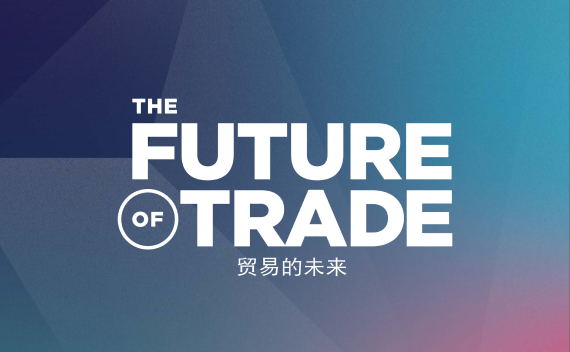The Future of Trade
Navigating a dynamic global trade landscape through concrete research
The Future of Trade 2024 is the fifth edition of DMCC’s biennial flagship report on the changing nature of global trade. In it, we examine the impact of AI, technology, global economic trends, and geopolitics on the future of trade, focusing on trade growth, sustainability and trade finance.
Transformative Forces Shaping Global Trade
As the world gears up for a period of profound change, new trends emerge that will reshape trade for decades. There are major gains to be made. This report presents three transformative forces that will define the global trade landscape in coming years:
01 - An Accelerated Shift to Regionalisation
New alliances formed in response to geopolitical pressures, climate challenges, and technological advancements will drive regionalisation.
02 - Widespread Supply Chain Restructuring
Companies will prioritise resilience by restructuring their supply chains to de-risk their logistics networks, and move production away from areas impacted by conflict, protectionism, and climate change.
03 - A Surge in Digital Services Trade and AI Adoption
AI is set to revolutionise trade by enabling businesses to optimise supply chains, enhance efficiency, and streamline transactions through predictive analytics and AI-powered solutions.
Key Findings for Global Trade
The Future of Trade
The Future of Trade
Discover the Future of Trade in Chapter 1 as we delve into the core trends and dynamics shaping the global trade landscape. How will trade evolve amidst geopolitical and macroeconomic challenges? What will drive trade resilience? Which regions are poised for trade growth? Uncover these answers and more in Chapter 1.
The Future of Trade
Hover over the graph to see more details
The Geopolitics of Trade
The Geopolitics of Trade
Gain valuable insights into the evolving dynamics of global trade in Chapter 2 as we explore the profound impact of geopolitics on trade routes and supply chains. How are ongoing conflicts and U.S.-China tensions driving a rerouting of trade? Which countries are poised to benefit from this shift in trading patterns? Explore how supply chain strategies are transitioning from cost-saving to resilience and 'economic security.'
The Geopolitics of Trade
The Dawn of AI
The Dawn of AI
Chapter 3 explores the transformative power of artificial intelligence (AI) and emerging technologies. How will AI revolutionise international trade, from operational efficiencies to customer engagement and trade in services? Having failed to live up to its promise so far, what future is there for blockchain? This chapter also explores the growing flashpoint of semiconductors between the U.S. and China and how this could redefine the trade landscape.
The Dawn of AI
Sustainability and the Future of Trade
Sustainability and the Future of Trade
Uncover the intricate link between sustainability, trade, and technology in Chapter 4 as we explore the profound impact of environmental policy on global trade. How will the surge in net-zero pledges and carbon pricing policies create new trade opportunities and reshape supply chains? Discover how climate concerns are driving a new surge in environmental goods trade - with a new set of winners and losers.
Sustainability and the Future of Trade
Countries that have implemented carbon pricing systems
Hover over the graph to see more details
Global Trade and Finance Gaps
Global Trade and Finance Gaps
Chapter 5 explores the challenges and potential solutions surrounding the trade finance gap. Currently at a record $2.5 trillion, what solutions exist to bridge this escalating crisis? Learn why SMEs struggle to access trade finance, particularly in developing countries, and how risk aversion and limited alternative finance options exacerbate the issue.
Global Trade and Finance Gaps
Hover over the graph to see more details
DMCC 2024 Commodity Trade and Industry Digitalisation Indexes
DMCC 2024 Commodity Trade and Industry Digitalisation Indexes
Delve into the DMCC Commodity Trade Index 2024, assessing ten prominent commodity markets' influence based on locational, commodity endowment, and institutional factors. Explore the DMCC Industry Digitalisation Index 2024, quantifying technology's impact on global trade across four pillars: upstream, production, downstream, and digital infrastructure.
DMCC 2024 Commodity Trade and Industry Digitalisation Indexes
Hover over the graph to see more details
Slideshare
View a snapshot of this year's research and results in a quick presentation.
THE FULL 2024 REPORT
An extensive look into the Future of Trade, complete with facts, figures, research and results.
Interview Insights From Global Trade Experts
For a full transcript of the interviews, download the 2024 Future of Trade report.

Ralph Ossa
Chief Economist at the World Trade Organisation
- Trade proved more resilient in the pandemic, contributing to global economic resilience.
- Weak aggregate demand and geopolitical tensions threaten international trade.
- Globalisation's future hinges on policy choices, with potential fragmentation or re-globalisation.
- Drive towards net-zero emissions creates new green trade opportunities.
- Multilateral trade provides economic security amid supply chain disruptions.

Dr Robert Yap
Executive Chairman at YCH Group
- Insights into how COVID-19 has transformed the landscape of global logistics and supply chain management.
- Discussion on the shift in supply chains away from China to ASEAN countries
- Overview of significant infrastructure projects like the Vietnam SuperPort™

Daryl Teo
Strategic Advisor at Lazada and Chief Investment Officer & Co-Founder of CoinClan OÜ
- Explore the potential of AI in revolutionising data analysis and interoperability.
- Discuss the ongoing issues of trust and cybersecurity in the digital marketplace.
- Which companies and sectors are poised to benefit most from technological innovations in trade?

Ram Ramachander
CEO of Hitachi ZeroCarbon Ltd., and Executive General Manager, Global EV Value Chain Business, Hitachi Europe Ltd
- Discover how Hitachi integrates sustainability into its operations and its goal to become carbon neutral by 2050.
- What are the complexities of achieving carbon neutrality across global supply chains?
- Insight into the necessary steps governments and international bodies should take to foster a sustainable economic future.
- The influence of carbon trading mechanisms like the EU ETS on global trade.

Zoë Knight
Group Head, Centre of Sustainable Finance and Head of Climate Change MENAT at HSBC
- Understanding green finance's role in net zero targets.
- Insights into how strong ESG credentials can support better access to trade finance.
- Learning about HSBC's commitment and strategies for 2050 net zero.
Explore More Editions of Future of Trade
.webp)
THE FUTURE OF TRADE SPECIAL WEB3 EDITION
Download Now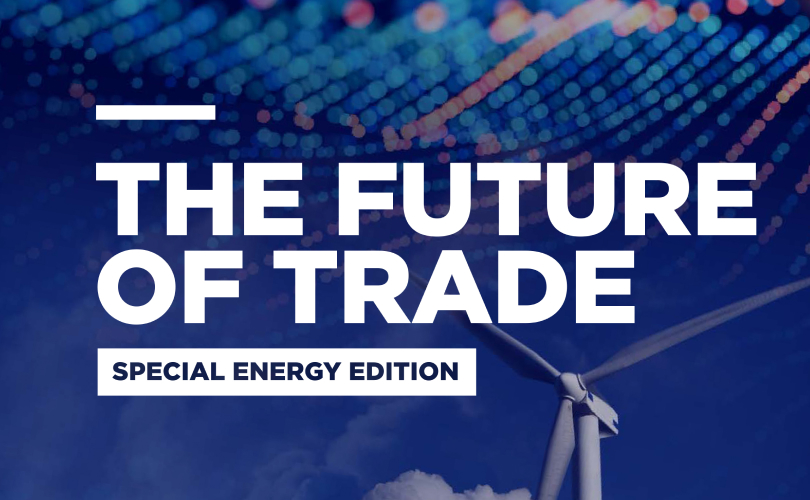
THE FUTURE OF TRADE ENERGY EDITION
Download Now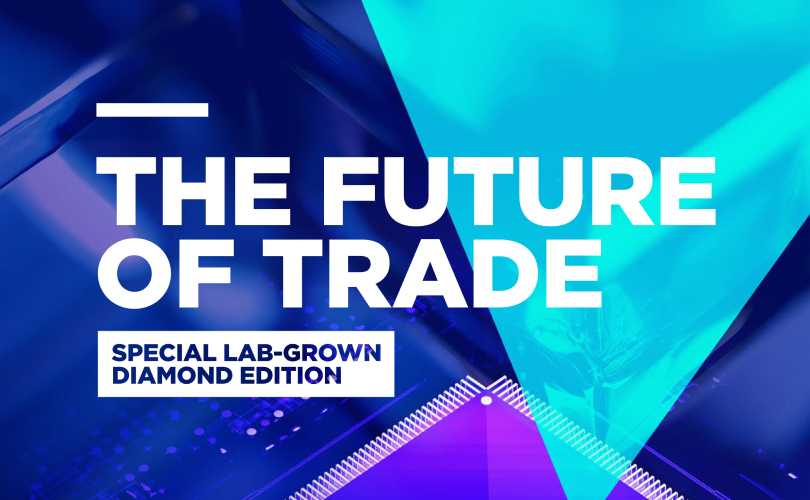
THE FUTURE OF TRADE LAB-GROWN DIAMOND EDITION
Download Report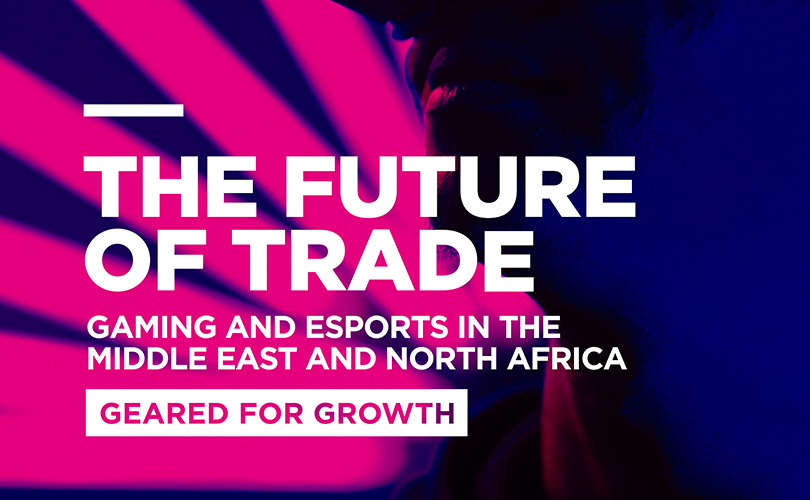
THE FUTURE OF TRADE GAMING EDITION
Download Report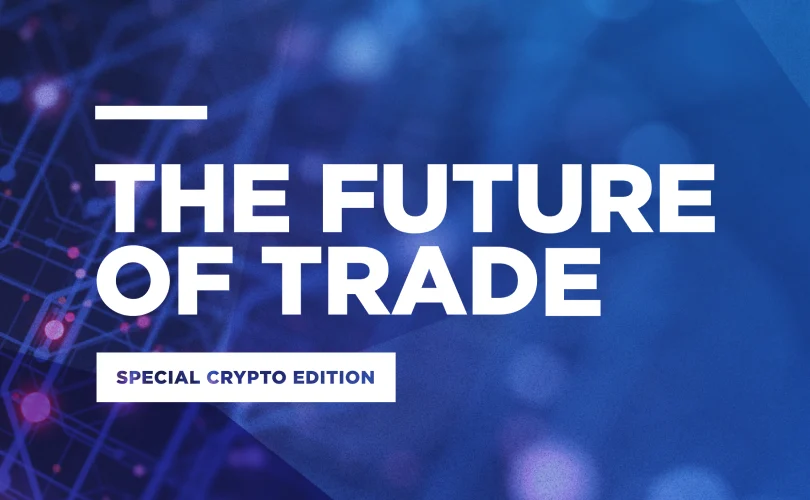
THE FUTURE OF TRADE CRYPTO EDITION
Download Report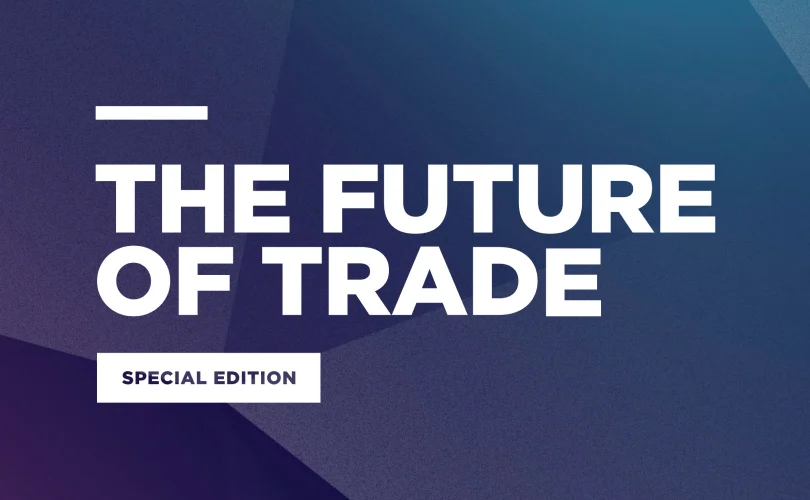
THE FUTURE OF TRADE 2021
Download Report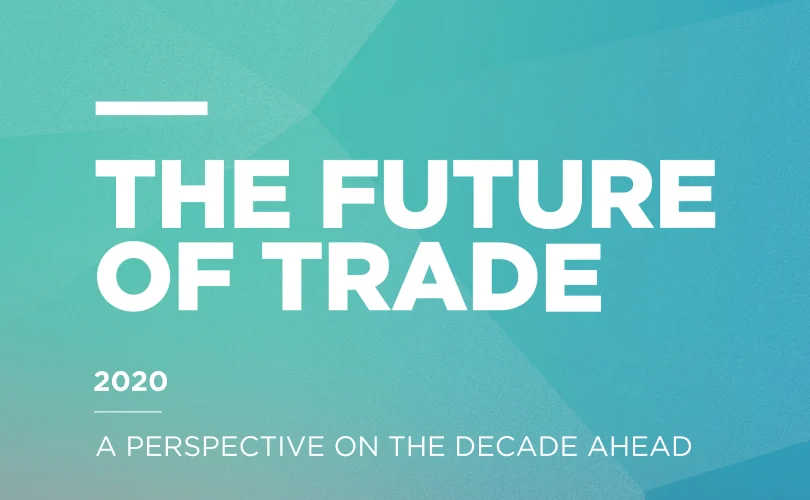
THE FUTURE OF TRADE 2020
Download Report